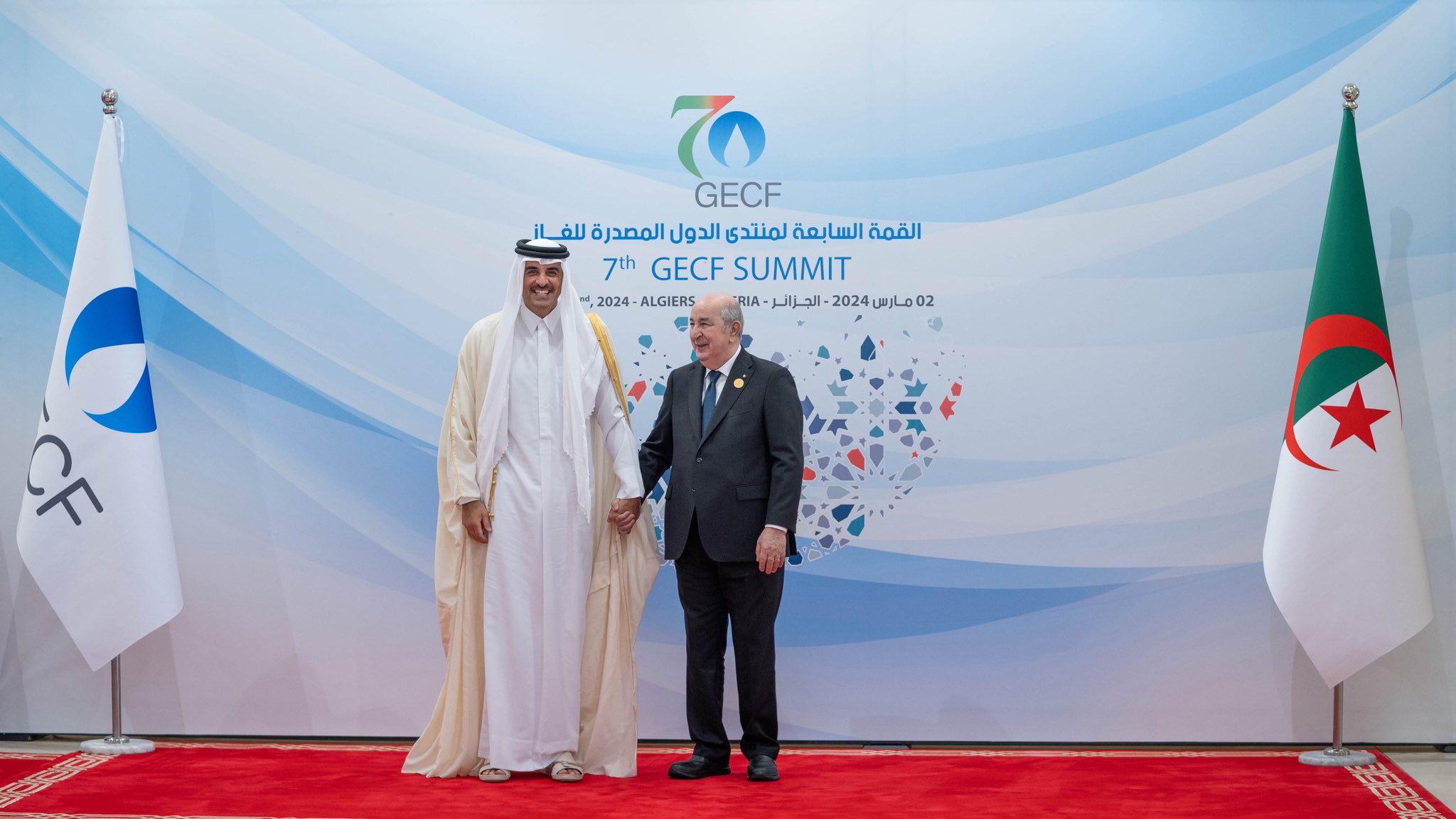The seventh Gas Exporting Countries Forum (GECF) concluded in Algiers, with Qatar’s Sheikh Tamim bin Hamad Al Thani expressing gratitude for Algeria’s efficient organisation of the event.
The seventh Gas Exporting Countries Forum (GECF) ended on Saturday in Algiers.
Qatar’s Sheikh Tamim bin Hamad Al Thani, who took part in the summit, thanked Algeria for its “efficient organisation” of the event in a post via X.
He added that items on the summit’s agenda included the global prospects and challenges for gas-exporting nations – from worrying geopolitics to economic upheaval.
Other delegations represented at the forum included Nigeria, the United Arab Emirates, Venezuela and Equatorial Guinea – among others.
Observer state countries present at the event included Mauritania, Mozambique, Azerbaijan, and Iraq – among others.
For Assef Molhem, the director-general at Moscow’s JSM Centre, Algeria commands balanced relationships with both gas-producing and consuming countries. Therefore, “effectively contribute to drafting proposals in the best interests of member states, enabling achievements and working on a ‘win-win’ principle that preserves the rights of all”.
Molhem added that “Algeria is capable of convincing states of this principle and mapping out investments in the gas sector, which will lead to energy market stability,” Algerian media reported.
Discussions at the summit also included matters of promoting sustainability within the gas exporting sector. As affirmed by Sheikh Tamim, Qatar will “continue to work on the common aspirations of our countries towards sustainable growth for the good of all”.
Algiers Declaration
The theme of this year’s GECF summit was ‘Natural Gas for a Secure and Sustainable Future’. According to Algerian President Abdelmadjid Tebboune, who hosted the summit, his nation “has always supported the idea of expanding the role of natural gas in sustainable development and its use as a clean source alongside new and renewable energies”.
President Tebboune added that technical progress within this field needed to be bolstered by policies encouraging investments in energy enhanced multilateral dialogue as well as action to achieve the goal of expanding the role of natural gas in sustainable development.
Fellow heads of state in attendance at the summit echoed the sentiments of Algeria’s president and approved of the Algiers Declaration, which was read out during the summit by Algeria’s Energy and Mines Minister, Mohamed Arkab.
The document highlighted the resolve of member states to “promote natural gas as an abundant, affordable, flexible and reliable energy source, and harness and develop more environmentally-friendly, efficient and sustainable natural gas technologies”.
Further, the Algiers Declaration acknowledges the strides made by eco-friendly natural gas in tackling climate change-related challenges. It also calls for greater use of the resources to promote sustainable development and bolster climate change mitigation and adaptation strategies.
However, the declaration also stressed the need for natural gas infrastructure to be strengthened by supply and demand securities. It further called for transparency and openness in international collaborations to effectively combat natural disasters and technological incidents, such as malicious use of new digital communication technologies.
MoU inked with AFREC
The Algiers Declaration also expressed strong support for African states tackling energy deficits.
On Friday, the forum announced the signing of a memorandum of understanding (MoU) on the sidelines of the GECF between the forum and the African Energy Commission (AFREC).
According to a GECF news release, the agreement represents a “significant step” in both reducing energy poverty as well as enhancing energy security in the African continent.
The MoU will usher in joint efforts in energy market analysis, data and information, technology advancement and devising strategies for energy system decarbonisation between the GECF and AFREC.
Remarking on this latest bilateral agreement, Amani Abou Zeid, the African Union (AU) Commissioner for Infrastructure and Energy, said that “by unleashing the potential of natural gas in Africa, we can drive sustainable development, enhance energy security, and contribute to global efforts to combat climate change”.
“This is why the AU is happy to work with the GECF,” she added.







